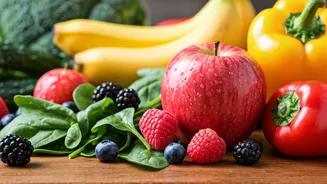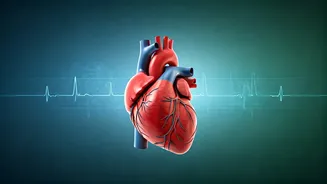Fiber-Rich Wonders
Fiber, often hailed as a digestive powerhouse, stands as the cornerstone of gut health. When it comes to foods that diminish gas and bloating, certain
types of fiber take center stage. Consider incorporating these fiber-rich foods into your diet. Apples, for example, offer a blend of soluble and insoluble fibers. Soluble fiber, when met with water, transforms into a gel-like substance, slowing down digestion and preventing gas formation. Insoluble fiber contributes bulk, aiding the smooth movement of food through the digestive tract. Bananas, another excellent source of fiber, are also rich in potassium, an electrolyte that regulates fluid balance. Furthermore, oats, a breakfast staple, are packed with beta-glucan, a soluble fiber that fosters a healthy gut microbiome, minimizing bloating and digestive distress. These foods do more than just improve your digestive comfort; they contribute to overall well-being.
Probiotic Powerhouses
Probiotics, the beneficial bacteria residing in your gut, play a critical role in digestion. Including probiotic-rich foods in your diet can significantly alleviate gas and bloating. Yogurt, a popular choice in India, is a great source of probiotics, particularly if it contains live and active cultures. Probiotics help balance the gut flora, reducing the overgrowth of gas-producing bacteria. Another beneficial option is kefir, a fermented milk drink, also rich in probiotics. It contains a wider variety of bacterial strains than yogurt, potentially offering a broader spectrum of benefits. Kimchi, a fermented Korean side dish made from vegetables, is another excellent source. The fermentation process increases the probiotic content, offering robust support to your gut health. Consuming these foods regularly will introduce beneficial bacteria to your gut, thereby improving digestion and diminishing bloating, making your gut feel lighter.
Ginger's Digestive Aid
Ginger, a spice integral to Indian cuisine, has long been recognized for its medicinal properties, especially its digestive benefits. It contains compounds like gingerol, which eases digestive discomfort. Ginger helps accelerate the emptying of the stomach, thereby reducing the chance of bloating. It also has natural anti-inflammatory properties, reducing inflammation in the gut, which can lessen gas and bloating. You can incorporate ginger into your diet in various ways; add it to your tea, use it in stir-fries, or even chew on a small piece of fresh ginger after meals. Furthermore, ginger helps to soothe the digestive system and promotes healthy digestion. By including ginger in your daily routine, you can experience a significant reduction in bloating and enjoy a more comfortable digestive experience.
Peppermint's Soothing Touch
Peppermint, whether in the form of tea or essential oil, provides effective relief from bloating and gas. The menthol in peppermint relaxes the muscles of the digestive tract, easing spasms and reducing the buildup of gas. It also improves the flow of bile, assisting in the digestion of fats. Peppermint tea is a simple and delicious way to get its benefits. Consuming a cup after meals can help to alleviate bloating and promote a feeling of lightness. You may also take peppermint capsules or use peppermint oil diluted in water. Peppermint’s soothing impact on the digestive system allows for a comfortable and more efficient digestion, leading to relief from bloating and other related symptoms. This makes peppermint a useful addition to your diet for anyone prone to digestive problems.
Fennel Seeds for Relief
Fennel seeds, a common ingredient in Indian spice racks, are incredibly effective in reducing gas and bloating. These seeds contain compounds that help to relax the intestinal muscles, which allows for the release of trapped gas. Fennel seeds also stimulate the production of digestive enzymes, which improve the breakdown of food and reduce bloating. They have a distinct, slightly sweet flavor and can be consumed in many ways. You can chew fennel seeds after meals to aid digestion, make fennel seed tea by steeping the seeds in hot water, or use fennel seeds in cooking to add both flavor and digestive benefits. Including fennel seeds in your diet not only provides relief from bloating but also promotes better digestion and contributes to overall gut health. The properties in fennel seeds make them an ideal natural remedy for digestive discomfort.
Turmeric's Anti-Inflammation
Turmeric, a fundamental spice in Indian cooking, has potent anti-inflammatory properties that can significantly benefit your gut health. The active compound in turmeric, curcumin, reduces inflammation in the digestive system, which alleviates bloating and gas. Chronic inflammation in the gut can contribute to various digestive issues. Incorporating turmeric into your daily diet can mitigate these problems. Turmeric can be added to curries, stews, and vegetable dishes. You can also consume turmeric in milk (turmeric latte) or with warm water to increase its absorption. Consuming turmeric helps enhance digestion and reduce bloating. Its antioxidant qualities also contribute to overall well-being. Regular turmeric consumption helps in maintaining a healthy digestive system, thereby preventing discomfort caused by gas and bloating.
Pineapple's Enzyme Power
Pineapple is filled with an enzyme called bromelain. Bromelain is known for its ability to break down proteins, which helps with digestion. Efficient protein breakdown can significantly decrease gas production and bloating. This enzyme also has anti-inflammatory properties, soothing the gut and reducing digestive discomfort. Consuming pineapple, either fresh or in juice form, can help reduce bloating and gas after meals, especially those rich in protein. Ensure the pineapple is fresh, as the enzyme content is highest in this state. Pineapple is not only a delicious fruit but also a beneficial aid for digestion, making it a great food to incorporate into your diet. Enjoying a few slices of fresh pineapple can help promote a healthier gut and improve your digestive experience.
Papaya for Digestion
Papaya contains an enzyme called papain, which is similar to bromelain in pineapple. Papain facilitates the breakdown of proteins. It helps in preventing gas and bloating and can improve the overall digestive process. Papaya also provides fiber, which helps in the smooth movement of food through the gut, thus reducing bloating and constipation. Consuming papaya regularly, whether raw or ripe, can help improve digestion. Add papaya to your breakfast, enjoy it as a snack, or include it in your salads to boost your digestion. The inclusion of papaya into your diet can help your digestive system, leading to a reduction in bloating. Moreover, the antioxidants and vitamins in papaya improve gut health.
Water and Hydration
Adequate hydration is crucial for optimal digestion and can help prevent bloating. Water aids in breaking down food, facilitating the efficient transport of nutrients. Drinking sufficient water can prevent constipation, a major cause of bloating. Dehydration can slow down the digestive process, leading to a buildup of gas and discomfort. You can maintain proper hydration by drinking water throughout the day. Listen to your body and consume water when thirsty, or set reminders to drink at regular intervals. Infusing your water with cucumber, lemon, or mint can make it even more enjoyable to drink. Staying well-hydrated is a simple but effective strategy to improve digestion, reduce bloating, and support overall health and well-being. Proper hydration helps food move through your digestive tract with ease and promotes regular bowel movements, preventing gas and discomfort.
Mindful Eating Habits
In addition to these foods, adopting mindful eating habits can also significantly reduce gas and bloating. Eating slowly allows you to chew food properly. This aids digestion and reduces the amount of air you swallow, which can cause bloating. Taking your time during meals and being aware of your body's signals can prevent overeating and promote healthier digestion. Avoid eating too quickly. Practice portion control and try not to eat when you are stressed or distracted. These habits can lead to overeating and digestive discomfort. You can also incorporate regular exercise into your daily routine. Physical activity stimulates the digestive system, facilitating the efficient movement of food. Mindful eating, combined with a balanced diet, can reduce gas and bloating and contribute to better overall health. These simple practices can make a huge difference in your digestive comfort.




















